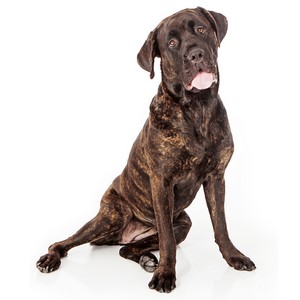How to Train a Cane Corso?
1. Offering praise and positive reinforcement is essential and extremely useful when training your Cane Corso young puppy.
2. In no scenarios, ought to you shout at your pup or penalize them for not listening — positive reinforcement is the best approach to train your Cane Corso.
3. When it concerns applauding your Cane Corso, instead of patting them on top of their head or back, provide a pat under their chin or chest as it is more affectionate for them.
4. Training your Cane Corso should not be done in long sessions. It is more efficient to train them with regular however brief sessions throughout the day. It’s recommended to train a Cane Corso 3-5 times a day for 5-minute sessions. This ensures you are getting their full attention.
5. When your pup has actually effectively done what you asked them to, reward them with a canine reward.
6. A huge mistake that a lot of Cane Corso owners make is letting their puppy do things at a young age that they would not want them to do later (e.g. laying on furniture). Don’t let them enter this practice otherwise it will be extremely challenging to change your canine’s behaviour later.
7. Puppy training for a Cane Corso must start at 8 weeks old and they typically run at complete learning capacity between 8-12 weeks.
8. Your tone of voice is your greatest training aid – when praising use a happy tone, and a firm tone when stating “No” (but make sure you’re not screaming).
How to Potty Train a Cane Corso puppy?
When bringing a home a brand-new [one of the very first things you will have to do Cane Corso, is potty training them. It will take a while and will be difficult however with our guide on how to potty train a Cane Corso pup, you will arrive quicker than later.
1. Take your Cane Corso puppy out routinely: To begin, take your Cane Corso outside every hour that you can and wait there with them for a few minutes to see if they need to go. This will restrict the opportunities of them going to the toilet inside and teach them where they must be doing it. Make sure you praise them or even provide them deals with when they do correctly go to the toilet outside. Over time, they will know they have to go to the toilet outside. As they are getting better, extend the quantity of time in between going outside.
2. Find out the indications your Cane Corso needs to go: Common indications that Cane Corsos and all canines reveal when needing to go the toilet include: sniffing the flooring, squatting, circling, barking, and sitting at the door that leads outside.
3. Take your Cane Corso to the very same spot every time: It’s crucial that you always try to take your Cane Corso When taking them to go to the toilet, pup to the same spot through the same exit. This will teach them to only go in the very same spot and will make cleaning up after them a lot easier for you. The exit ought to be somewhere easily noticeable so you know when they are heading towards there or waiting there that they need to go to the toilet.
How to Train a Cane Corso Not to Bite?
The Center for Disease Control mentions that pet dogs bite approximately 4.5 million people per year. This high number might appear a bit distressing, but our guide on how to train a Cane Corso not to bite will help guarantee your Cane Corso doesn’t add to this.
1. Mingle your Cane Corso at a young age: The finest thing you can do for your Cane Corso is presenting them to a great deal of new people, places, and scenarios as you can. A well-socialized Cane Corso young puppy is much less most likely to be nervous in brand-new circumstances, and will then be less most likely to be aggressive.
2. Neuter your Cane Corso: There is some proof that states that neutered pets tend to be less aggressive and less most likely to bite.
3. Participate in obedience training: A loyal Cane Corso is a lot easier to control. It is less likely to be aggressive and bite if you can control your canine’s habits.
4. Know your Cane Corsos body language: It is well known that a Cane Corso who is terrified of having their territory attacked has the prospective to be aggressive and bite. Habits like raised heckles, bared teeth, and a lowered head are all indications that a Cane Corso is uncomfortable. Try to comfort them and remove them from this situation when its safe if you notice your Cane Corso pet dog showing this type of body language.
How to Train a Cane Corso to Stop Barking?
Getting your Cane Corso to stop barking takes time, consistency, and practice. It doesn’t occur over night but our ideas on how to train a Cane Corso to stop barking will be extremely handy.
1. Don’t shout back: Yelling will just get your Cane Corso to bark much more because they think you are joining in. Speak securely and calmy, but do not scream.
2. Teach your Cane Corso to understand the word “Quiet”: Whenever your Cane Corso is barking, state “Quiet” in a firm and calm voice. Await them to stop barking and when they do applaud them with a treat.
3. A tired Cane Corso is a peaceful Cane Corso: If your Cane Corso barks a lot by themselves, take them out for more regular workout or play. They are less likely to bark when tired.










